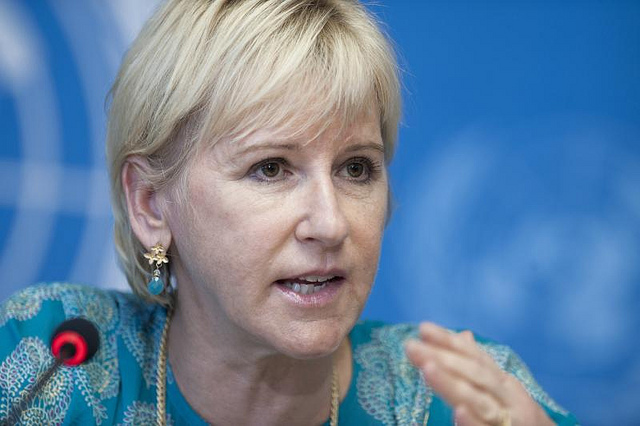This week Saudi Arabia decided to recall its Ambassador to Sweden after Margot Wallström, the Swedish Foreign Minister, criticized Saudi “human rights and democracy” standards. Wallström had been particularly vocal about the case of Raif Badawi, a Saudi blogger and activist sentenced to 10 years in prison and 1000 lashes for setting up a website called “Saudis Free Liberal Forum”. The Swedish Foreign Minister had described Badawi´s punishment as “medieval methods”.
Following Sweden´s formal recognition of Palestine, Ms Wallstrom had been invited as a guest of honour to deliver a speech at the Arab League ministerial meeting in Cairo on 9 March. The Swedish government was later informed, however, that the speech was not to take place due to Saudi Arabia´s objections. Wallström voiced her regret and considered that Riyadh´s decision to prevent her from addressing the meeting was “a shame”. On 10 March, Sweden´s Defence Minister confirmed that his Government had opted to drop a memorandum of understanding on military cooperation with the Saudis. The deal had originally been signed in 2005 and was due for renewal in May of this year.
Sweden´s ruling coalition had been sharply divided over the issue. Its main member, the Social Democrats led by Sweden´s Primer Minister and former trade union leader, Stefan Löfven, was partly in favour of the agreement, whereas the Green Party, their coalition ally, was strongly opposed. Saudi Arabia is one of Sweden´s main clients. In fact, Sweden had sold weapons and defence materiel to Saudi Arabia worth more than 1 billion euros in 2014 alone. The government´s eventual decision was thus sharply criticized by the country´s business community, who believed that Sweden´s credibility as a reliable trade partner was being undermined and that access to markets was being jeopardised, especially after relations with Israel tensed up following Sweden´s daring move on Palestine. Refreshingly, though, it seems that for the Sweden respect for human rights is not up for sale.


